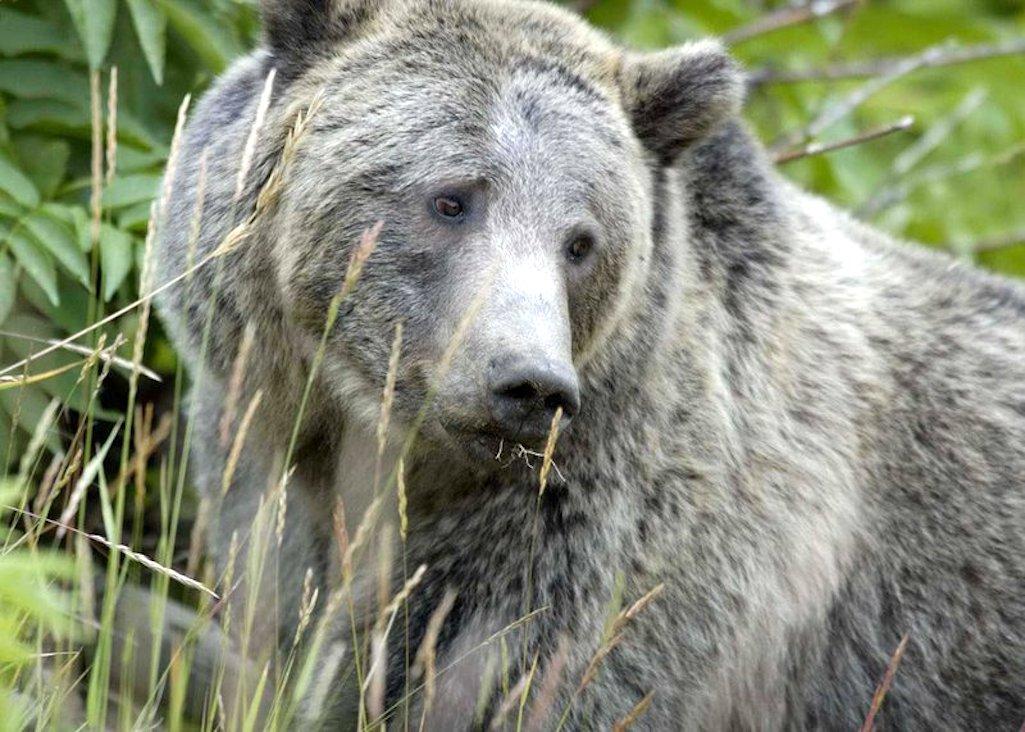
The U.S. Forest Service and U.S. Fish and WIldlife Service have been ordered to reconsider the number of grizzly bears that could be killed for livestock predation in a grazing allotment it authorized in the Greater Yellowstone Ecosystem/NPS file
A unanimous 10th U.S. Circuit Court of Appeals panel ruled Thursday that the U.S. Fish and Wildlife Service and U.S. Forest Service violated the Endangered Species Act in 2019 when they authorized the killing of up to 72 grizzly bears in part of the Greater Yellowstone Ecosystem south of Yellowstone National Park and east of Grand Teton National Park in Wyoming.
The ruling (attached below) held that the agencies failed to adequately consider placing a limit on the "taking" of female grizzlies in the Upper Green River Area Rangeland of the Bridger-Teton National Forest to protect grizzly bear recovery, and also failed to consider the area's contribution to the mortality sink for female grizzly bears in the Greater Yellowstone Ecosystem. It requires the Fish and Wildlife Service and Forest Service to reconsider the number of grizzlies that can be killed during the 10 years that the grazing allotment was authorized for.
“We’re hopeful that in reconsidering their flawed analysis, the agencies will spare dozens of female grizzly bears previously sentenced to death by the Trump administration,” said Andrea Zaccardi, legal director of the Center for Biological Diversity’s carnivore conservation program. “This ruling confirms that federal officials can’t sidestep the law to allow grizzly bears to be killed on public lands to appease the livestock industry.”
According to the groups that challenged the grazing plan, it would have allowed an unlimited percentage of females to be killed in response to livestock conflict, despite the significance of breeding bears to the species’ recovery.
The three-judge panel that heard the case found that a Biological Opinion the Fish and Wildlife Service prepared on the grazing plan failed to specifically evaluate "whether the authorized 72 lethal grizzly bear takes could result in enough female takes to jeopardize the grizzly bear population in the Project area."
"The [Biological Opinion] did not attempt to predict what proportion of the 72 lethal takes would be female bears," the court continued. "Lethal takes of 72 bears would be approximately double the number of bears that had been killed in the Project area in the prior 20 years. ... If, as the [Biological Opinion] states, survival of the species depends on 'minimizing' annual female grizzly bear mortality, it should at least have considered whether a female lethal take limit should be included."
Megan Backsen, an attorney for the Western Watersheds Project that brought the lawsuit along with the Center for Biological Diversity, the Alliance For the Wild Rockies, the Yellowstone to Uintas Connection, and the Sierra Club, called the ruling "a victory not only for endangered grizzly bears but for all wildlife in the Upper Green River Area. The Court recognized that the Forest Service cannot ignore its own experts, particularly when those experts warn that a decision will harm those species that depend on intact ecosystems for their very survival.”
The grazing program area encompasses the headwaters of the Green and Gros Ventre rivers and parts of two designated wilderness areas in the Bridger-Teton National Forest. The area provides important habitat for Yellowstone ecosystem grizzly bears — listed as threatened under the Endangered Species Act — and other imperiled fish and wildlife species.
“Throughout this case, the Forest Service has tried to run away from its wildlife habitat commitments made to the public in its Forest Plan,” said Jonathan Ratner, Western Watersheds Project’s Wyoming Office director. "We are pleased to see that the court understands that the promises made in the Forest Plan are made to the American people and the wildlife that lives on these lands. The Forest Service has always ignored its Forest Plan and treated it like a livestock feedlot."


